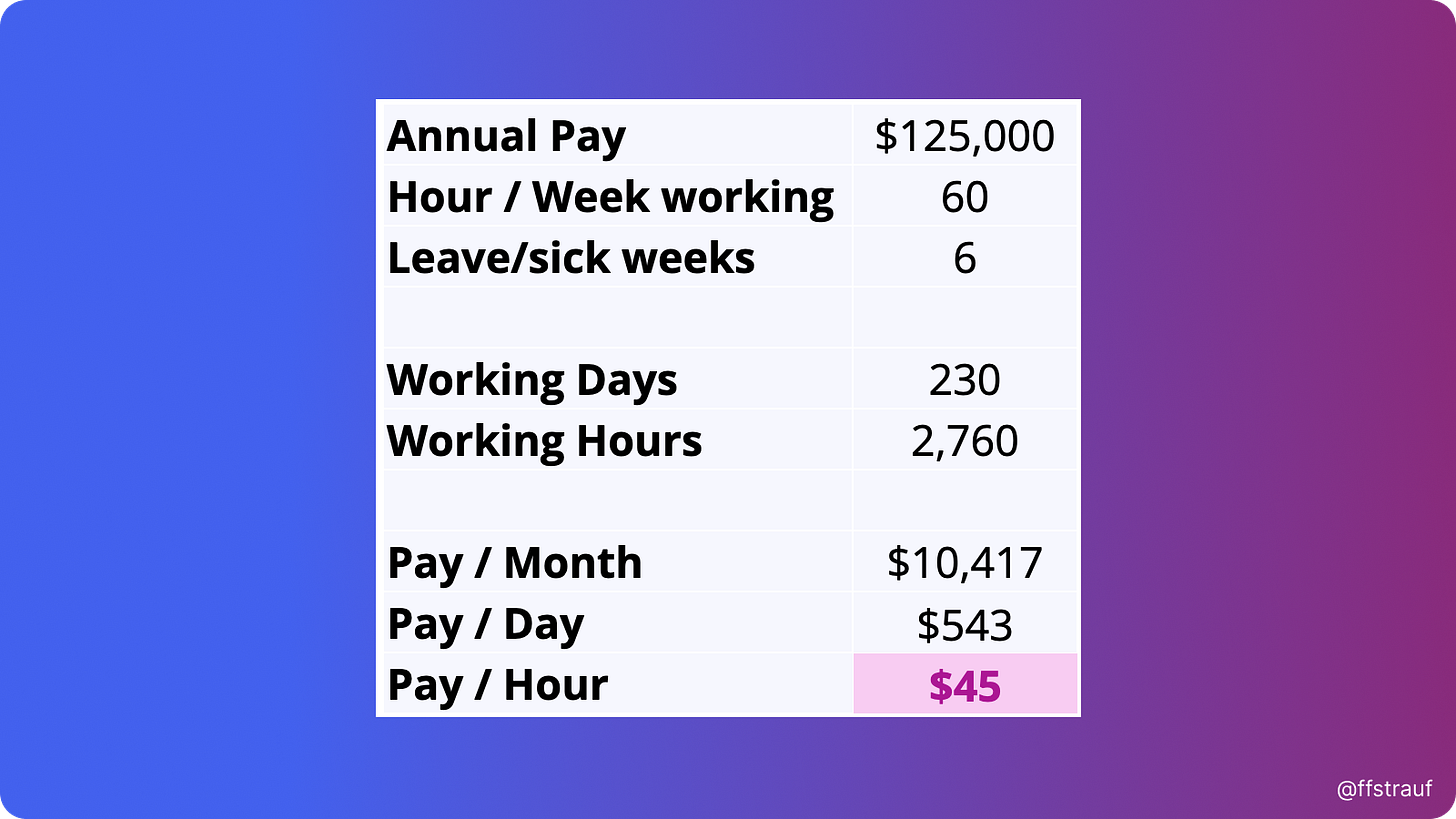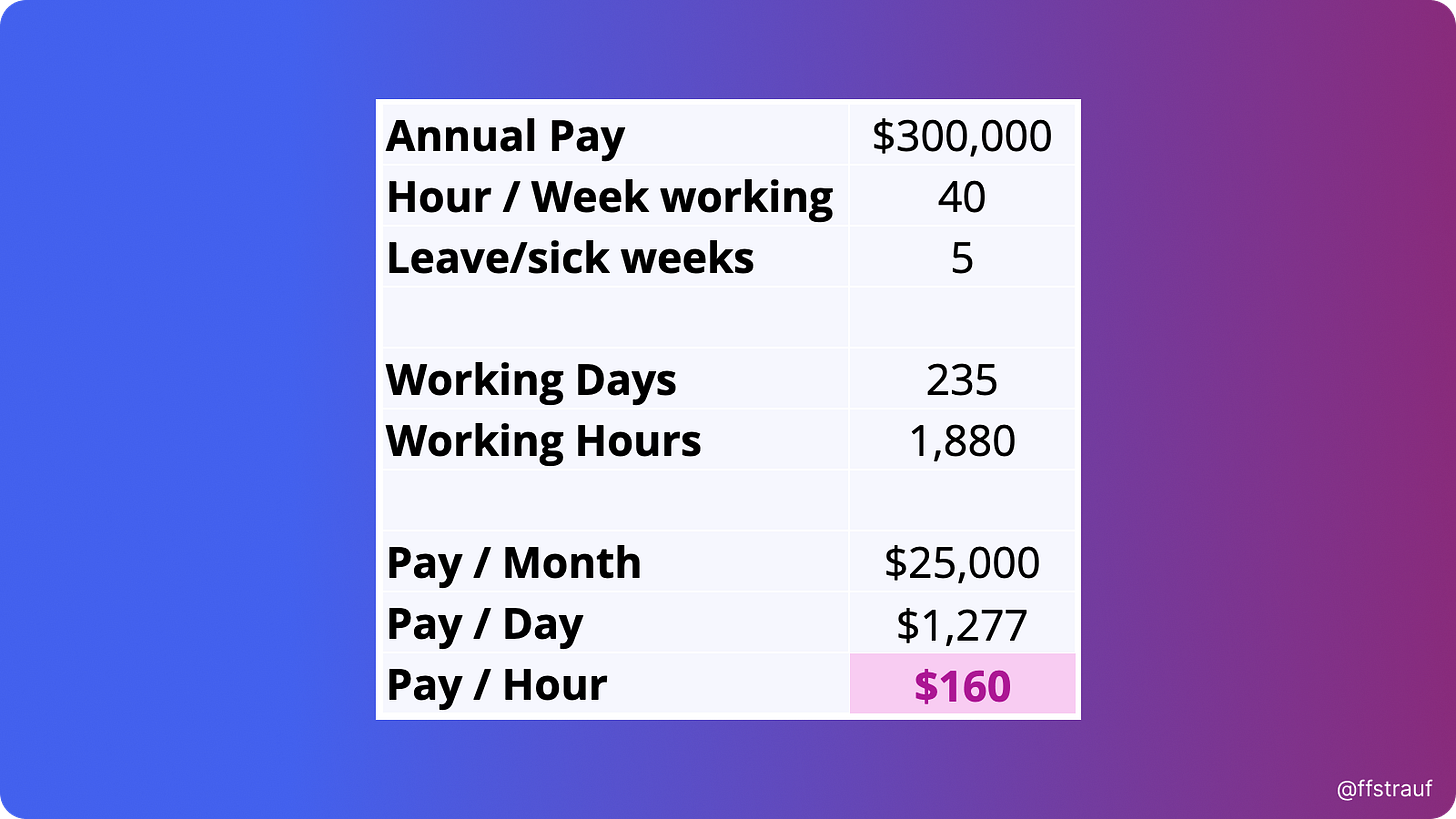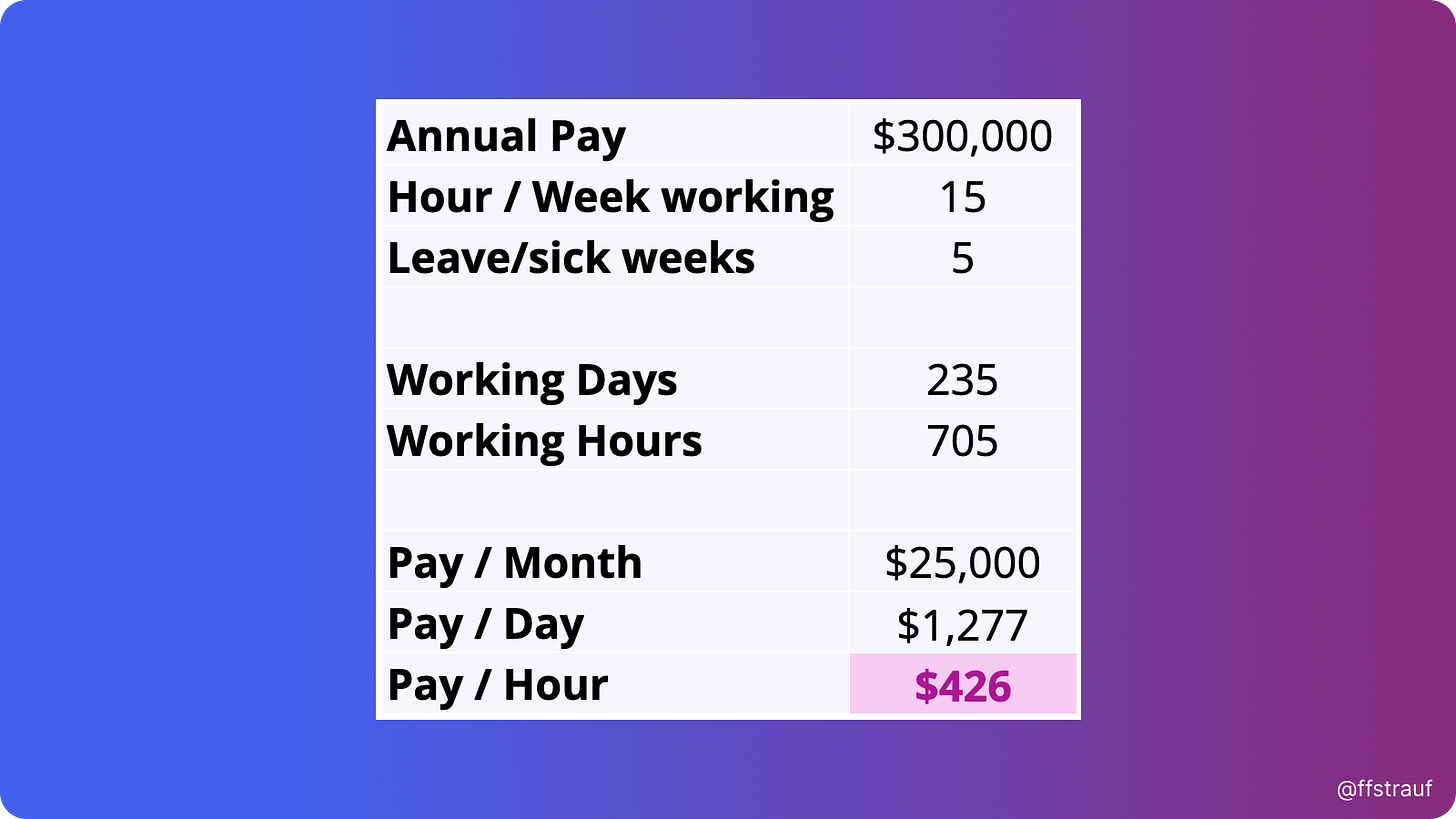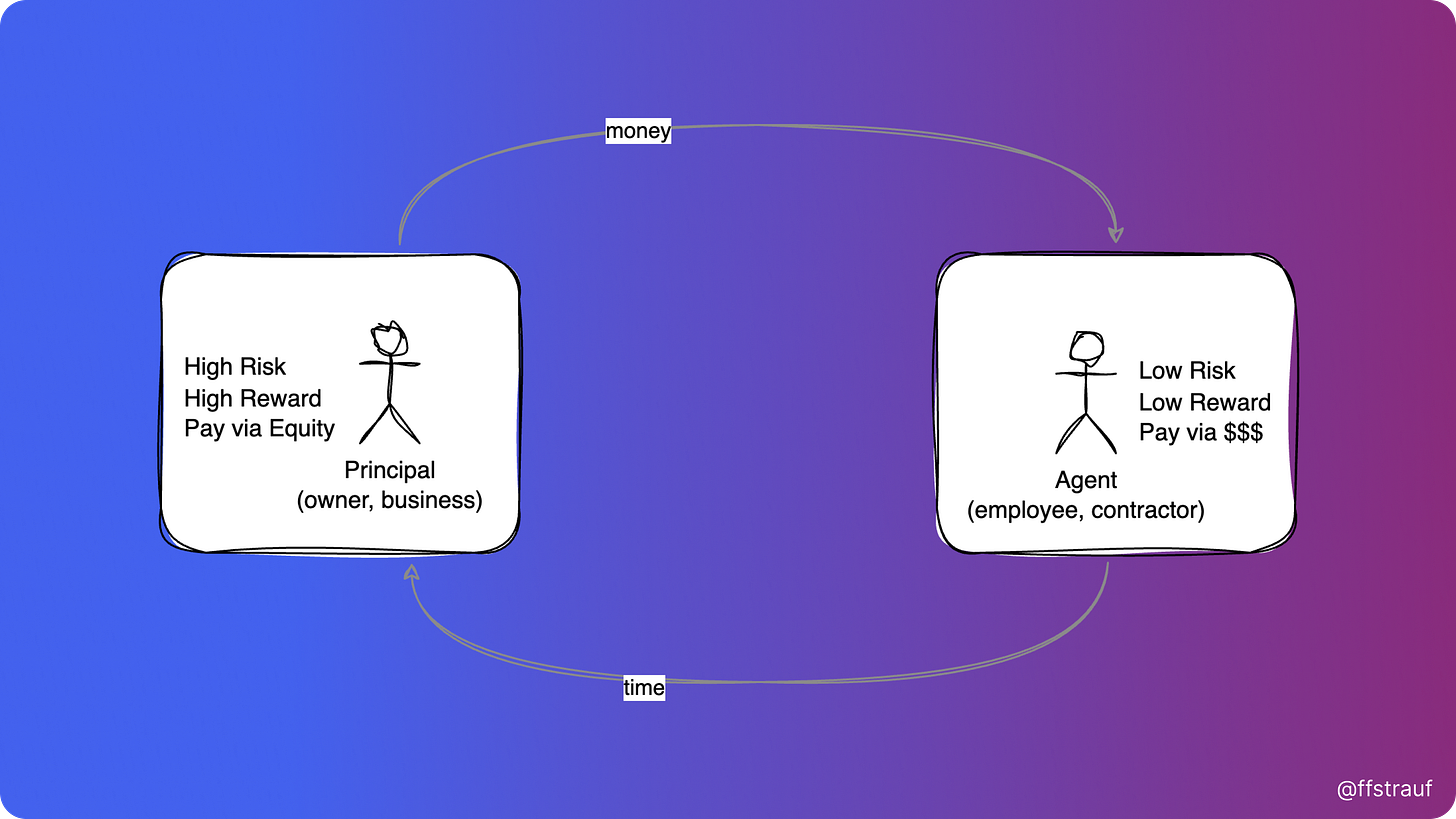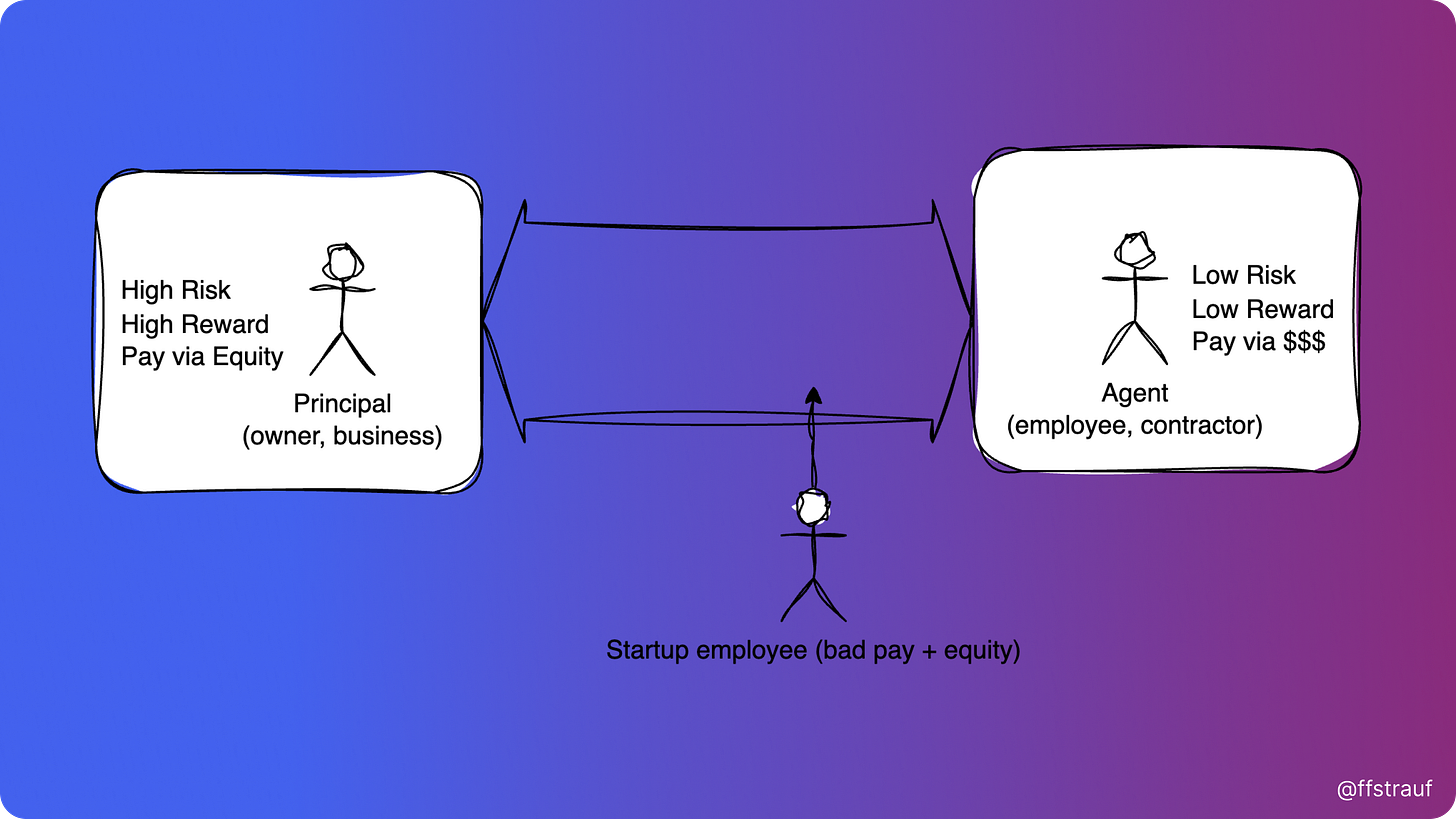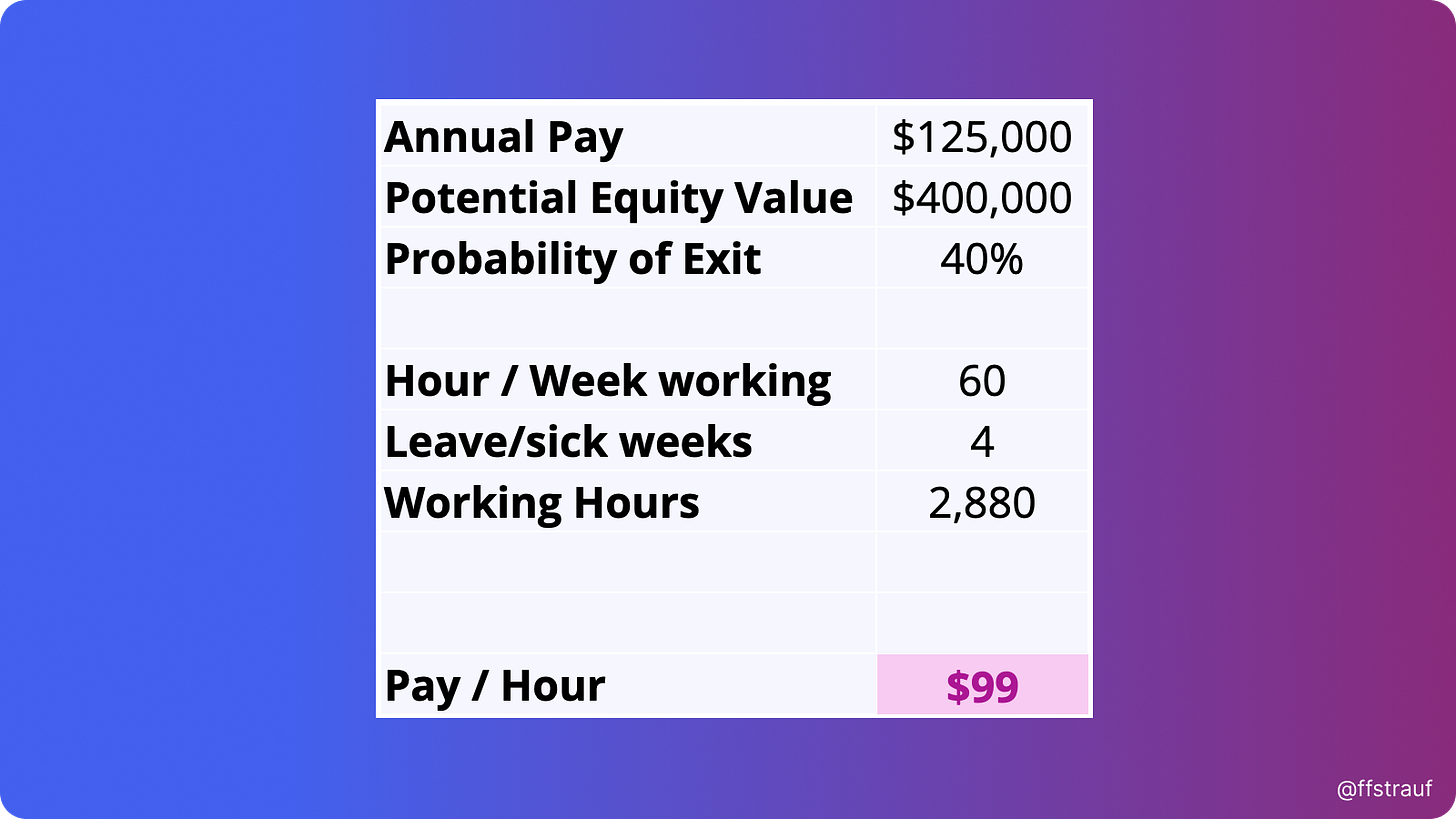We all have this friend, Senior Vice Presidents of god knows what, making a ton of money and working long hours. Many of these folks are true busy bees, and it's a status symbol of sorts to work hard and long hours.
I have no problem with that if it's what they're truly passionate about.
If it isn't though, then they should start thinking about their work as selling their time.
In fact, I don't think it would harm anyone to make the connection between time and money.
Not only to buy time, but also to judge how to spend it best.
How I went from $45 to $426 per hour
Let's keep it simple. The time in your life is limited. Every hour that you spend working, therefore, can be seen as selling your time. Lawyers know this. A lot of these folks charge hourly rates.
However, if you have a regular job, your salary alone won’t show how well you’re compensated for your time.
You'll have to do a bit of math to figure out what you trade your precious life hours for.
In 2015, I was a Senior Solution Architect, making ~70K EUR per year (a really good salary in Germany at my age then), working 60 hours a week. That resulted in an hourly rate of just 25 EUR or 45 AUD.
By 2019, however, I was a Principal Solution Architect, making 300k AUD per year (pretty good in Australia at my age then). I worked an average of 40 hours a week, which resulted in an hourly rate of 160 AUD.
By 2021, I was still in my role, but I figured out that by cutting a lot of useless meetings and focusing on what's essential, I could significantly reduce my hours while keeping my pay. With roughly 15 hours per week, I got to an hourly rate of 426 AUD.
These figures show stark differences. The biggest difference doesn't come from the pay raise, but from spending less time. This is an extreme example, but you'd be surprised how inefficient these big tech companies are.
I ended up not liking the role I was in as it was just too salesy, and so I quit despite the decent hourly pay.
Either way, many people don't ever do this math and are unaware of where they stand.
What I like about doing the math is that it reveals this equalising metric. If a lower earner works less than a higher earner, they can easily out-earn a higher earner per hour.
It's a personal metric that levels the playing field (similar to runway).
Of course, my examples here are quite narrow and simplified. They only consider employees, don't factor in things that could reward you later, and leave aside meaning and fulfilment.
Principal Agent
Let's look at the self-employed, startup people and founders. There's no better way to start this than with some Econ 101: Principal-Agent.
Fundamentally, you are acting as an agent if you work for someone else for no equity. If you are acting as an agent, that's not bad at all; you are simply selling your time. Agents have much less risk and things to worry about; they just get paid cash.
If you have equity in something you work for, you lean more towards being a principal. At the core, you are not only selling your time for money but also for ownership, which could later be turned into a much higher reward.
The more you move towards the principal side, the trickier it is to calculate how much you make per hour. You could be paid a lousy startup salary, making your hourly rate quite low, but then, if you get a good exit, it could boost it to levels that wouldn't be possible as just an agent. The principal side is all about risk and reward.
Risky reward often means maybe getting a big payout in the future, but maybe not.
Other things could boost your payout in the future:
Joining a startup for low pay but cashing in with an exit.
Reading about Bitcoin in 2011 and deciding to buy some.
Learning a new skill and thus enabling you to sell your time for more.
Many more exist, and they are all about evaluating risk and reward.
Let's say you've joined a startup for a low salary, but with high hopes of an exit. A calculation like this could help:
Not easy to calculate, but here is what it could do to your hourly rate scenario.
It's not always possible to quantify everything and I'm not suggesting you should. More important is to simply be aware of this metric.
Why Should You Care About This Metric?
Being aware can mean that you know that you are selling your time.
Next, you can make up your mind if you are happy about that or if you want to change something about how much you're selling your time for.
That happened to me when I moved to Australia with SAP. Personally, it was a great move, but career-wise, it wasn't. SAP Australia is a hub for sales and sales support in the region, with little engineering.
As a Software Engineer, there is little room to grow and move.
When this finally sank in, I changed my attitude. When my expertise was required, I helped out, stepped up, etc., but when it wasn't, I focused on other things and did not partake in the busy work of daily meetings.
Instead, I started to build Tokenomics DAO by writing articles about Token Economics.
This boosted my hourly rate directly, as I reduced the hours I worked, but also indirectly, as I was building something new, learning something new, with the potential for a later hourly pay boost.
As with many things in life, it helps to be aware of something to start improving.
What does this mean for you?
First, I encourage you to do the math right now - here's my basic template.
Second, think about what you're doing to boost your pay in the future. Are you learning something, have some nice equity somewhere, or are you building valuable connections?
Time is our real currency. If the two steps above leave you satisfied, awesome! Go on. If not, change something.
Selling time is just one side of the coin, though.
In my last piece, I wrote about how money can buy you time — e.g., retirement before retirement or just trying something new. This piece flips that lens: it’s about how you sell your time, and whether you’re getting a good deal in return.
I see buying time as using your savings for a time off to learn something or recalibrate.
Selling time is about ensuring your work hours give you something meaningful — money, learning, opportunity.
If you want to work 80h/week, that's great, but that will only be sustainable if you do something with high payout, potentially high future payout or because you absolutely love doing it.




